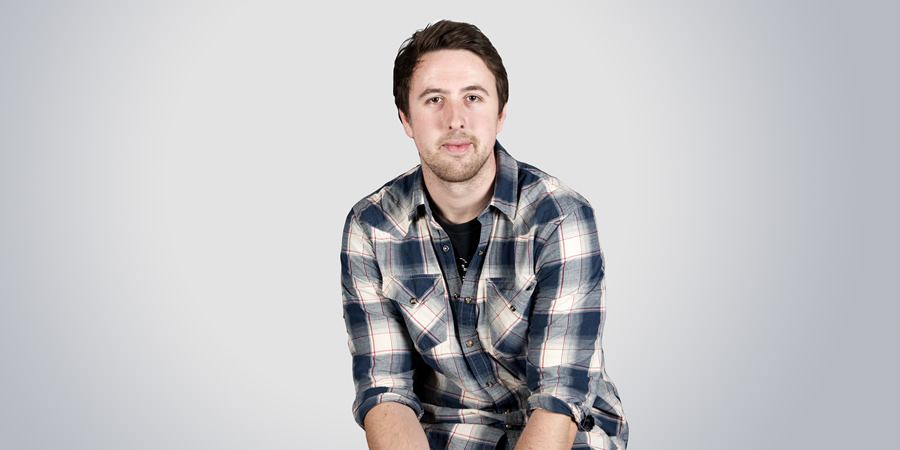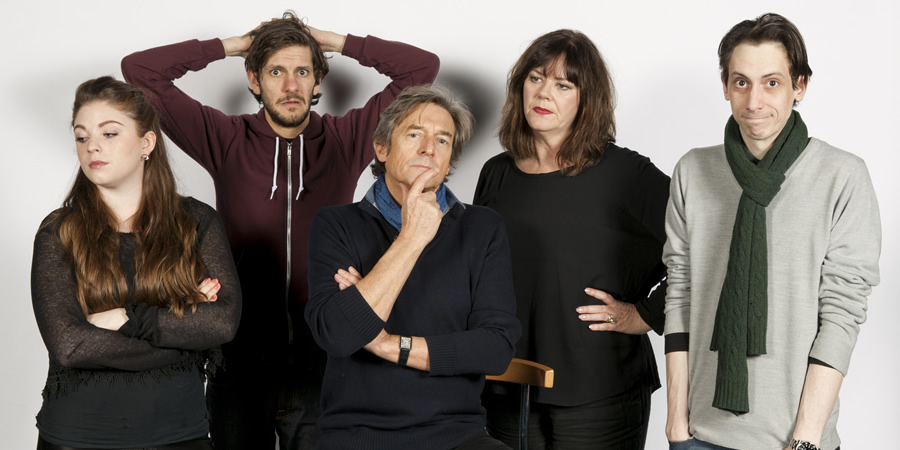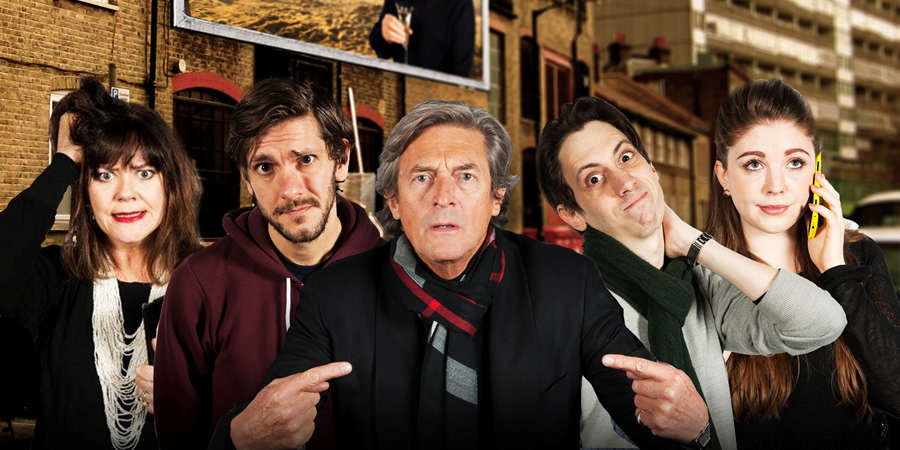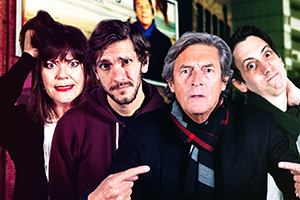Edward Rowett interview

Reluctant Persuaders, the Radio 4 sitcom set in London's worst advertising agency, returns for a third series this October. We chat to writer Edward Rowett to find out more...
Hi Edward. How did you get started in comedy?
Growing up I was dead set on becoming an actor, and it occurred to me that if you write the material yourself, no-one can stop you performing it. And a lot of the first comedies I remember really loving - Monty Python, Not The Nine O'Clock News - were sketch shows, so it seemed a good fit. A university friend of mine and I got together, stuck an ampersand between our surnames [Frimston & Rowett], and off we went.
What caused you to switch the stage for scripts?
It turned out I was right, no-one can stop you performing your own scripts, but they can gently encourage you not to. We did three not especially successful years at Edinburgh as a sketch double act, and it was increasingly apparent that people were responding to the writing rather than the performing. On top of that, I realised I was enjoying the writing a lot more, so started to do more of it, working on things other than sketches, and the performing just naturally fell away.

Reluctant Persuaders is back for a third series soon. Could you set the scene for those who haven't heard it before?
It's about a very tiny, very terrible advertising agency called Hardacre's, the vanity project of Rupert Hardacre. He was one of the big beasts of advertising in the 80s and 90s, until finally alienating all his colleagues and clients with his terrible behaviour. A bit like Don Draper, but without the self-realisation.
He founded Hardacre's to prove a point to the world, long after the world had ceased to care. He's sucked into his orbit a group of equally damaged individuals: a neurotic copywriter (Joe), a misanthropic account manager (Amanda), an unhinged art director (Teddy), and a disinterested receptionist (Laura).
Over the first two series they've gradually been trying to claw their way to respectability as an agency. At the end of the second they finally won a huge smartphone account. The third series picks up a week afterwards, and explores the ramifications of that.
You seem to know a fair bit about the world of advertising. Hopefully nothing in the show is based on reality?
There are a few things drawn from my experiences of working in offices generally, but the advertising elements are fairly fantastical. That said, one of the ads I wrote for the last series subsequently appeared in a Coke campaign. I'm sure just a coincidence, but it did make me feel briefly smug. And then lastingly depressed, when I thought about how much the writer of that ad would have been paid.
You've got a brilliant cast involved - Nigel Havers, Josie Lawrence, Mathew Baynton, Rasmus Hardiker and Olivia Nixon. Does that make things easier or more nerve-wracking?
Both. I feel amazingly fortunate to have actors like this involved. I wrote most of the first series without knowing who would be in it - if I had known, I might have been slightly paralysed.
Knowing who I was writing for definitely pushed me to up my game in the second series, and again in this. I think the characters are much richer now than they were at the start; I've tried to show new sides to all of them this series. When you have a cast this good it feels like you should take advantage of it.
Was this series easier or harder to write than the first two?
Looking back now it's done, I think easier. But if you'd told me that while I was writing it, I might have punched you - it never feels easy when you're in the middle of it. And there was the added challenge of writing six episodes this series rather than four. But episode by episode, I do think it came easier. I know the characters better every time, and I'm more comfortable with the form. So easier, if not easy.

You seem to have pushed the boat out this series a bit. For example, the first episode features a musical segment!
Definitely. That was one thing I really wanted to do this series - be a bit bolder narratively and structurally. It's easy to fall into the trap with a radio sitcom - especially one set in an office - of sounding a bit samey. 28 minutes of people in rooms talking, occasionally interrupted by the sound effect of a door opening and closing. There's nothing wrong with that, and you can definitely do it well, but I wanted to try to make something a bit stranger and more adventurous this series. Hence the musical number.
What lessons have you learned about comedy writing since making Series 1?
Loads! Mainly, how to do it better. There's a lot of stuff in the first series that I'd do differently now...but I only learned how to do it differently by doing it that way the first time. So it's a constant learning curve. Probably the biggest lessons I've learned have been about writing for a live audience.
Is that a particular challenge?
So much of the comedy I love - and of what's made - is non-audience now, it's easy to get into that mindset when writing. I have to keep in sight that the kind of jokes I love in things like Detectorists or The Good Place probably won't work in front of a live crowd.
At the same time you have to remember you're writing for two distinct audiences. It's easy to feel the live recordings are the be all and end all, as that's when you're most aware of the audience and their reaction. But the 300 people who watch it live are a tiny fraction of the number who will hear it on the radio. So you have to write big enough that it will play to a live crowd, but also detailed enough that it will work for people listening in on headphones or in their cars.
You've worked with two heavyweight script editors - Rob Grant, of Red Dwarf, and Mark Evans, who wrote Bleak Expectations. How has that been?
Amazing. I grew up with Red Dwarf, and I think Bleak Expectations is the funniest thing Radio 4 has ever put it out - a conversation with either of them is like a comedy masterclass. They've both been brilliant in terms of direct feedback on the scripts, and also in encouraging me to find my own voice as a writer.
It looks like there's much scope for more adventures at Hardacre's. Would you be up for a fourth series? Any ideas for storylines yet?
I'd definitely be up for it. Even though three series sounds (and feels) like a lot, we've only made 14 episodes. So there are definitely more stories to tell with these characters. I have a vague idea of what they might be, but nothing concrete - I usually end up discovering the stories as I write them.

